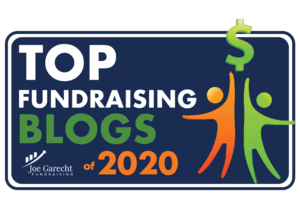We are all amateurs.
In my April 2019 article for Advancing Philanthropy, the Association of Fundraising Professionals magazine, I explain it this way:
In the film ‘Limelight’ (1952), Charlie Chaplin’s character says, ‘That’s all any of us are: amateurs. We don’t live long enough to be anything else.’ In other words, we will never know everything we need to know. All we can do is continue to learn and, perhaps, share what we know with others, inspiring them as we have been inspired.”
Let’s review the way good teachers shape our lives, and consider some tips for how to find true experts to learn from rather than mere wannabes.
 Teachers shape our lives and help make us into the people we are. Take a moment and think about the affect your parents have had on you. Consider the lessons you’ve learned from religious leaders, schoolteachers, job supervisors, and others. Some people have taught us valuable skills, some have inspired us, some have taught us right from wrong.
Teachers shape our lives and help make us into the people we are. Take a moment and think about the affect your parents have had on you. Consider the lessons you’ve learned from religious leaders, schoolteachers, job supervisors, and others. Some people have taught us valuable skills, some have inspired us, some have taught us right from wrong.
In my Advancing Philanthropy article and the sidebar, you’ll read about how teachers have affected the lives of seven fundraising professionals, some you’ll likely know:
- Teachers help us develop broad skills such as critical thinking.
- Teachers help us develop specific skills such as how to write an effective appeal letter.
- Teachers inspire us.
- Teachers encourage us.
- Teachers move us to think beyond ourselves and better understand others.
- Teachers open our minds to lifelong learning.
- Teachers motivate us to give-back by sharing our own knowledge.
Just as good teachers have helped us become the people we are today, teachers will help us continue to grow and become the people we want to be tomorrow. However, for that to occur, two things must happen: 1) we need to remain open-minded and intellectually hungry; and 2) we need to seek out good teachers who have something legitimate to offer.
Today, with the proliferation of available books and educational presentations dealing with nonprofit management and fundraising, it can be a challenge to distinguish between the true experts and the pretenders. Here are some tips to help guide you:
Books. With the ease of self-publishing, anyone can be a book author. In the past, respected publishers such as John Wiley & Sons (producer of my book, Donor-Centered Planned Gift Marketing) provided readers with a level of quality assurance. Today, you need to make that evaluation for yourself. Choose books from established publishers, those on the CFRE International Resource Reading List, or from authors with a sound track record whom you know and trust. Just because someone has self-published a book is no reason to distrust the material; conversely, just because someone has written a book is no reason to automatically assume they have something of value to offer.
Articles. As with books, there are a number of trustworthy article publishers that generally do a fine job of curating material. For example, AFP’s magazine, Advancing Philanthropy, is a great source for inspiring and instructional articles. However, in the digital age, anyone can post their articles on their own blog. Of the hundreds or more of nonprofit management and fundraising blogs that exist, how can you know which to trust? One way is to seek out blogs hosted by people whose work you know and whom you trust. Another way is to look at what others are saying about the available blogs. For example, here is a list of “Top Fundraising Blogs for 2019.” You can find other lists of highly-rated blogs in the right-hand column.
Conferences. Usually, the bigger and more established the conference, the better the instructors are likely to be. However, even at the best conferences, some of the presenters will be duds. Just as you need to exercise care about where you invest your conference-going budget, you need to be careful about which sessions you choose to attend. You should be certain to consider both the session topic and the teacher.
Webinars. As with conferences, you should seek out webinars from established presenters, both in terms of hosts and teachers. Many webinars are free to participants. However, such webinars could ultimately prove quite costly if they offer suggestions that ultimately harm your fundraising program. Remember, free isn’t always truly without cost.
Mentors. When seeking a mentor, consider the people in your network who have the proven expertise you need. To help build your network, join a professional association. Making it even easier to find a mentor, some professional associations manage formal mentoring programs that will help connect you with an expert willing to help.
How do you evaluate and choose educational opportunities to make sure you’re learning from a true expert? What are your favorite conferences? Who are some of the teachers you respect?
Who is your all-time favorite teacher and why? I hope you’ll share your story below.
You can read the teacher-stories of others in my article for AFP. I’m honored that my article about teachers appeared in this month’s issue of Advancing Philanthropy. You can download a copy of “To Sir/Madam, With Love” by click here.
That’s what Michael Rosen says… What do you say?








